BMW i4 VS Dacia Spring
BMW i4
The BMW i4 beautifully merges the dynamism of a saloon with the efficiency of an electric vehicle, offering a truly exhilarating driving experience. Its design seamlessly blends elegance and athleticism, highlighting BMW's dedication to both aesthetics and performance. Inside, the i4 boasts a high-tech cockpit that harmonises luxury with intuitive technology, allowing drivers to stay connected while on the move.
more informationDacia Spring
The Dacia Spring stands out as an affordable and environmentally friendly option in the electric vehicle market, combining practicality with a compact design ideal for urban settings. Its minimalist interior, while basic, provides all the essential features needed for a comfortable drive, reflecting its cost-effective approach. The vehicle's performance suits city driving, making it an appealing choice for those seeking an entry-level electric car.
more information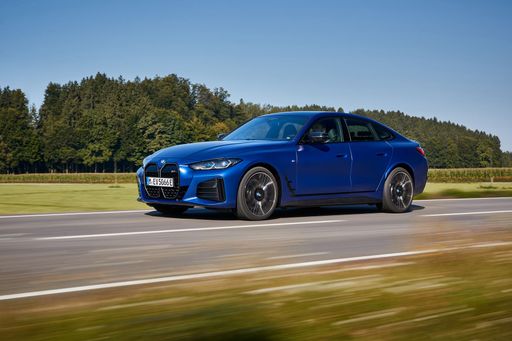 @ press.bmwgroup.com
@ press.bmwgroup.com
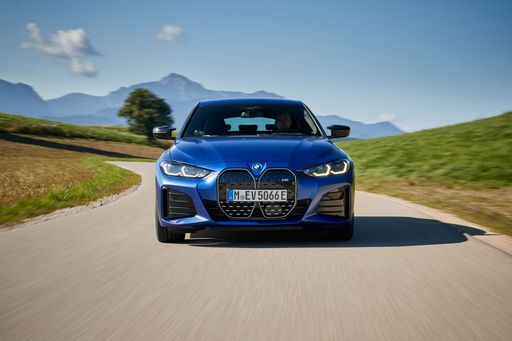 @ press.bmwgroup.com
@ press.bmwgroup.com
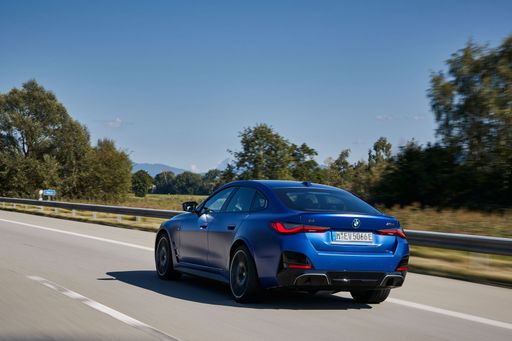 @ press.bmwgroup.com
@ press.bmwgroup.com
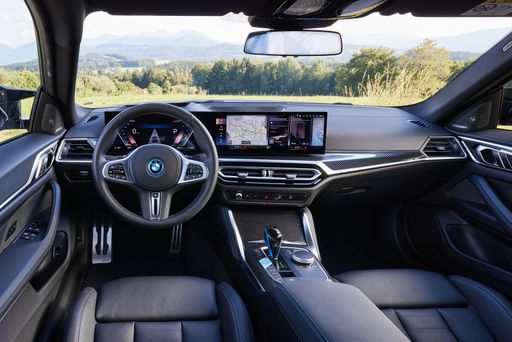 @ press.bmwgroup.com
@ press.bmwgroup.com
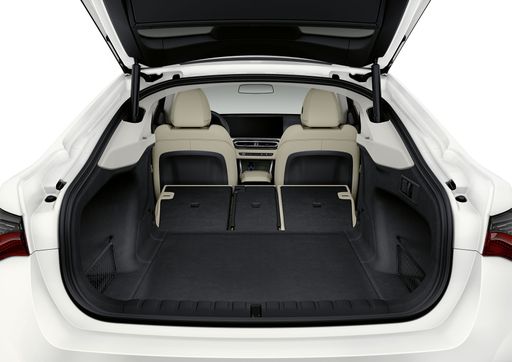 @ press.bmwgroup.com
@ press.bmwgroup.com
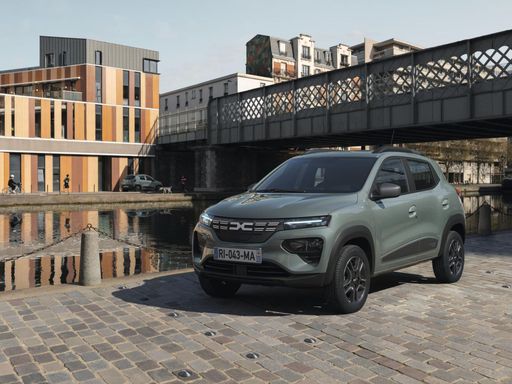 @ dacia-presse.de
@ dacia-presse.de
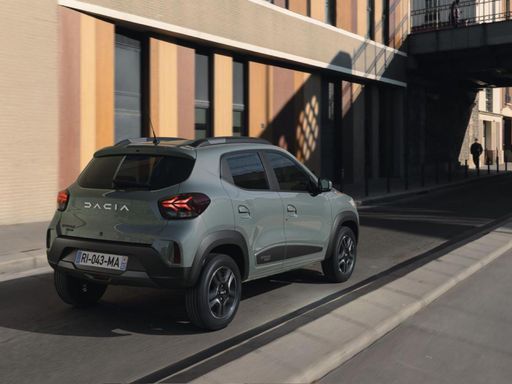 @ dacia-presse.de
@ dacia-presse.de
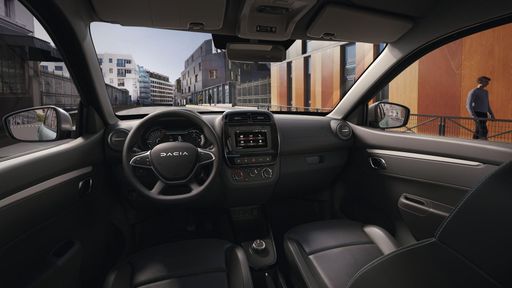 @ dacia-presse.de
@ dacia-presse.de
Costs and Consumption |
|
|---|---|
|
Price
about 53200 - 66600
$
|
Price
about 15600 - 18400
$
|
|
Consumption L/100km
-
|
Consumption L/100km
-
|
|
Consumption kWh/100km
15.6 - 18
kWh
|
Consumption kWh/100km
13.2 - 14.1
kWh
|
|
Electric Range
485 - 582
km
|
Electric Range
225 - 228
km
|
|
Battery Capacity
67.1 - 81.3
kWh
|
Battery Capacity
26.8
kWh
|
|
co2
0
g/km
|
co2
0
g/km
|
|
Fuel tank capacity
-
|
Fuel tank capacity
-
|
Dimensions and Body |
|
|
Body Type
Hatchback
|
Body Type
SUV
|
|
Seats
5
|
Seats
4
|
|
Doors
5
|
Doors
5
|
|
Curb weight
2075 - 2290
kg
|
Curb weight
1030 - 1050
kg
|
|
Trunk capacity
470
L
|
Trunk capacity
308
L
|
|
Length
4783
mm
|
Length
3701
mm
|
|
Width
1852
mm
|
Width
1583
mm
|
|
Height
1448
mm
|
Height
1519
mm
|
|
Payload
445 - 480
kg
|
Payload
265 - 285
kg
|
Engine and Performance |
|
|
Engine Type
Electric
|
Engine Type
Electric
|
|
Transmission
Automatic
|
Transmission
Automatic
|
|
Transmission Detail
Reduction Gearbox
|
Transmission Detail
Reduction Gearbox
|
|
Drive Type
Rear-Wheel Drive, All-Wheel Drive
|
Drive Type
Front-Wheel Drive
|
|
Power HP
286 - 544
HP
|
Power HP
44 - 65
HP
|
|
Acceleration 0-100km/h
3.9 - 6
s
|
Acceleration 0-100km/h
13.7 - 19.1
s
|
|
Max Speed
190 - 225
km/h
|
Max Speed
125
km/h
|
|
Torque
400 - 795
Nm
|
Torque
113 - 125
Nm
|
|
Number of Cylinders
-
|
Number of Cylinders
-
|
|
Power kW
210 - 400
kW
|
Power kW
33 - 48
kW
|
|
Engine capacity
-
|
Engine capacity
-
|
|
Top speed
190 - 225
km/h
|
Top speed
125
km/h
|
General |
|
|
Model Year
2024
|
Model Year
2024
|
|
CO2 Efficiency Class
A
|
CO2 Efficiency Class
A
|
|
Brand
BMW
|
Brand
Dacia
|
BMW i4
Exploring the Future: The BMW i4
In the ever-evolving landscape of electric vehicles, BMW has stepped forward with its state-of-the-art BMW i4. This model combines luxury, performance, and sustainability, reflecting the brand's commitment to innovation and excellence. Let's dive into the technical details and the innovative features that make the BMW i4 a noteworthy entry in the electric vehicle market.
Power and Performance Unleashed
Under the sleek bonnet of the BMW i4 lies a powerful electric motor, offering a range of performance options from 286 to an exhilarating 544 PS. With a 0 to 100 km/h acceleration time spanning between 3.9 and 6 seconds, the i4 provides a driving experience that matches its sporty exterior. The advanced powertrains offered include rear-wheel drive as well as all-wheel drive options, catering to different driving preferences.
Energy Efficiency Meets Long Range
The BMW i4 stands out not only for its performance but also for its impressive efficiency and range. The electric vehicle boasts a consumption rate ranging from 15.6 to 18 kWh per 100 km, complemented by an electrical range between 485 and 582 km. Such figures are achieved through BMW's innovative engineering and the generous 67.1 to 81.3 kWh battery capacity.
Innovation and Technology at the Core
BMW has infused advanced technology throughout the i4 to enhance both comfort and connectivity. The vehicle features state-of-the-art integration with the BMW iDrive system, providing seamless control and access to driving data, entertainment, and navigation. Furthermore, the i4 is fitted with cutting-edge driver assistance features, making every journey safer and more enjoyable.
Design and Functionality: The Perfect Balance
The aesthetically pleasing design of the BMW i4 is equally matched by its functional interior. With a 470-litre boot and the ability to comfortably seat up to five passengers, the vehicle balances practicality with style. The streamlined body measuring 4783 mm in length, 1852 mm in width, and 1448 mm in height, ensures that head-turning aesthetics are accompanied by aerodynamic efficiency.
Sustainability in Motion
Beyond performance and elegance, the BMW i4 is a testament to the brand's commitment to sustainability. As a zero-emission vehicle with a CO2 output of 0 g/km, it aligns with the global shift towards environmentally friendly transportation solutions. Furthermore, its efficient energy consumption underscores its effectiveness as a leader in electric vehicle innovation.
Conclusion: The BMW i4 – A Visionary Road Ahead
The BMW i4 is more than just an electric car; it is a sophisticated blend of cutting-edge technology, impressive range, and unparalleled performance. With its CO2 efficiency class rating of A and top-tier driving dynamics, the i4 is set to redefine the standards for electric vehicles in the luxury segment. Whether for a daily commute or a longer journey, the BMW i4 promises an exceptional driving experience while paving the way for a sustainable future.
Dacia Spring
The Revolution of Affordable Electric Mobility: The Dacia Spring
The automotive world has witnessed remarkable advancements in electric vehicles (EVs), with the Dacia Spring emerging as a noteworthy contender in the affordable segment. Combining efficiency, affordability, and practicality, the Spring offers an intriguing prospect for eco-conscious individuals and city dwellers alike.
Powertrain and Performance: A Look Under the Hood
The Dacia Spring is equipped with an electric motor that delivers between 44 to 65 PS, translating into a versatile driving experience tailored to urban landscapes. It operates on a front-wheel-drive system, ensuring a familiar and manageable handling experience.
Dacia Spring's electric engine is paired with an automatic transmission, utilising a reduction gearbox. This setup allows for smooth acceleration and a top speed of 125 km/h, ensuring that everyday driving scenarios are handled with ease.
Efficiency and Range: Eco-Friendly without Compromise
Efficiency is a cornerstone of the Dacia Spring's design, boasting an energy consumption of just 13.2 to 14.1 kWh per 100 km. When fully charged, its 26.8 kWh battery offers a respectable range of 225 to 228 km, making it ideal for daily commutes and short trips.
Furthermore, the Spring takes pride in its commendable CO2-efficiency class A, emphasising its commitment to reducing environmental footprint with a zero-emission profile.
Design and Practicality: Compact yet Comprehensive
Lying in the SUV category, the Dacia Spring is compact with dimensions of 3701 mm in length and 1583 mm in width, making it a perfect match for urban environments where space is at a premium. Despite its modest size, it provides a generous boot space of 308 litres, ensuring practicality isn’t sacrificed.
Comfort and Interior: For the Everyday Journey
The Dacia Spring comfortably seats up to four passengers. The cabin offers a minimalist yet functional design, available in multiple trim lines including Essential, Expression, and Extreme, allowing customers to choose according to their taste and requirement.
With its ergonomic layout and simplicity, the interior is crafted to enhance the driving experience by focusing on essential needs, avoiding unnecessary distractions.
Affordability and Accessibility: Breaking Barrier
The Dacia Spring stands out in the electric vehicle market due to its affordability, with prices ranging from 16,900 to 19,900 €. This ensures that environmentally friendly transportation is accessible to a broader audience.
Additionally, the Spring allows for cost-effective maintenance and operational expenses, offering monthly running costs between 570 to 599 € and cost per km between 22.8 to 24 cents, making it an economical choice in the long run.
Final Thoughts: The Future of Urban Mobility
In summary, the Dacia Spring serves as a testament to how electric vehicles can be both affordable and practical, without compromising on essential features. Whether it is for the eco-conscious urbanite or those looking for a cost-effective daily driver, the Spring is positioned as a viable solution for navigating the future of urban mobility.
